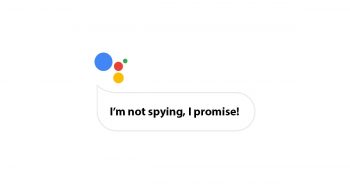
US Senators accuse Google of ‘putting profits before country’ with Huawei-built smart speaker
Members of the US Senate are again showing their displeasure for Google’s business practices, issuing an open letter to the company which asks for more details regarding Google’s now-scrapped plans to partner with Huawei to build a Google Assistant smart speaker. The letter, which was sent from Sen. Josh Hawley (R-MO), Sens. Marco Rubio (R-FL) and Tom Cotton (R-AR) to Google CEO Sundar Pichai, accusing the company of prioritizing “profits before country” while also asking if Google had performed “due diligence” before agreeing to “partner with Huawei to develop listening devices for use in the United States.”
Below are additional questions that the Senators have posed to Google regarding its partnership with Huawei on the smart speaker:
- Why did you partner with Huawei to develop listening devices for use in the United States?
- Why did you continue that partnership even after the Department of Justice released an indictment charging that Huawei, as the Washington Post put it, “is determined to succeed by using theft and duplicity”?
- What did you learn about national security vulnerabilities with listening devices while working with Huawei, and what steps, if any, did you take to eliminate national security risks from these devices?
- What consideration, if any, did you give to the national security risk posed by Huawei before agreeing to work with them on this sensitive project?
- The reports about this project state that you “suspended” the project because Huawei was placed on a trade blacklist. Do you plan to resume helping Huawei install listening devices into American homes if the blacklist is lifted?
While Google isn’t working on the smart speaker at this time, there’s a chance that work on the project will resume if Huawei’s blacklist designation is lifted. The real issue at hand is that no concrete evidence has been presented by the US government which shows that Huawei if spying on US customers or has direct ties to the Chinese government. In early July, the Trump administration stated that US companies would be able to resume business with Hauwei, allowing them to buy and sell products that do not pose a “great national security” risk to the US, though the specifics of this reversal have not yet been revealed or fully implemented yet.
A Google Assistant speaker built by Huawei would work the same as Sony, Sonos LG or JBL speakers would. The software inside the speakers would connect directly to the user’s Google account and would most likely not send any information to the manufacturer’s servers. Since Google Assistant speakers from third-party manufacturers are all built in collaboration with Google, the company would likely not give their seal of approval if any additional hardware or software built into the speaker.
The Senators have requested that Google answer their questions by August 30, giving Google a good three weeks to come up with answers that the Senators will likely not be happy with.